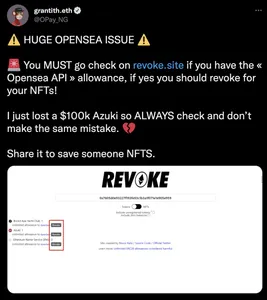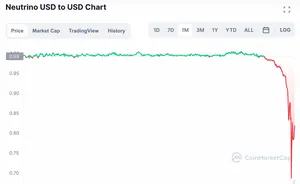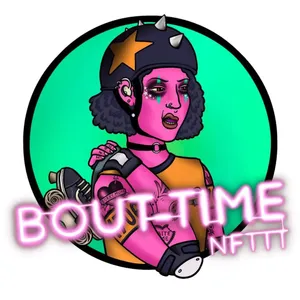Elephant Money is a defi project with some questionable promises — its Twitter account advertises that people can "earn 672% APY", and a recent tweet encouraged people to use Elephant Money "as your new bank: Your share of ELEPHANT tokens can be compared to your debit account, except that it also generates you money. Stampede Perpetual Bonds is your retirement fund." Hopefully no one took them up on their suggestion to put their debit account balance or retirement money into the project.
Attacker cashes out more than $11 million from Elephant Money in a flash loan attack
Celsius stops allowing non-accredited investors in the United States to lend out their crypto
Individual accreditation is based on net worth or income: only those with net worth above $1 million, or yearly income above $200,000, qualify. American Celsius users were largely unhappy with the change, with one writing, "Celsius Network making the rich richer. Shameful."
Ichi token plummets 90% after Rari liquidity pool is emptied
One Rari developer blamed Ichi for the disaster, writing, "Fuse is a permissionless protocol. Pool operators are responsible for following best practices to avoid situations like this one". Rari Capital's official Twitter account also blamed Ichi, stating, "This is a permissionless pool that is owned and operated by Ichi. We hope to see an announcement from Ichi regarding redemption strategies and next steps to make users whole."
In the FAQ about the incident, Ichi wrote that they had allowed such a high LTV ratio in the pool because they expected "users would make responsible decisions that would benefit the community". There is currently around $30 million of bad debt in the liquidity pool.
NFT collector suffers wallet compromise and loses over 100 NFTs, priced at over $600,000
Attacker drains Creat Future tokens through flaw that allows anyone to transfer the contents of another person's wallet
$CF was an asset belonging to Creat Future, an early-stage defi project. Some have speculated that the hack was an inside job, and the vulnerable function was added intentionally.
First crypto burger purchase at Bored Ape restaurant illustrates why people don't widely do this
A customer ordered two combo meals, which he purchased by using his mobile crypto wallet to transfer 2 $APE. I was able to track down the transaction, and at the exact time of transfer, 2 $APE were priced at $21.92. The value of $APE has increased by 20% since then, so the purchaser lost out on those earnings by spending them at that time (compared to cash, which is worth roughly the same as it was 10 days ago). This is a (very small) example of why people don't tend to use as currency the same assets they are expecting to increase substantially in value. Furthermore, the purchaser had to agree to an estimated $10 in gas fees when he confirmed the transaction — half as much again as the price of the meal. The transaction ultimately cost the purchaser $4.66 in gas due to fortunately low rates that day, but it was a transaction fee that wouldn't exist if they used cash, or would be substantially smaller and typically absorbed by the restaurant if using a credit card.
Painful financial implications aside, a public transaction record means it's now trivial for anyone to see who is purchasing food at the restaurant using crypto in real time — something that has concerning implications for victims of stalking and other abuse if implemented more widely, as well as just for average people who enjoy having some degree of privacy.
Anyway, hopefully the food's good — assuming the person had any appetite left after looking at their food containers depicting an ape with green skin sloughing off its face.
Gripnr seeks to financialize your Dungeons & Dragons games
A company called Gripnr is already working to line up NFT pre-sales, despite acknowledging that they have no idea how they will prevent fraudulent data input — an issue commonly known as the oracle problem. It's also unclear how they intend to change the game so that it's sufficiently different from the Wizards of the Coasts game that they will not face legal action (an issue that ended another crypto project planned to be based around a WotC game). We can only hope that none of this may last long enough to become an issue, given that Gripnr have come up with an idea that I can't imagine appealing to a single person who's ever played D&D.
- "NFTs Are Here to Ruin D&D", Gizmodo
Legal action begins against developer who solicited investments to build an OpenSea competitor, then used it to fund his NFT trading
Meanwhile, Gaye used the project Twitter account to promote his own NFT collection. He also took the donated funds and used them to buy NFTs. When pressed on this in the project's Telegram chat, he wrote, "Im buying NFTs because its my ETH and thats what I wanted to do." After crypto scam investigator zachxbt wrote about Gaye's scams, Gaye threatened to "put him in the ground if we ever meet in person".
Gaye has spent almost 400 ETH on NFTs since beginning to collect donations for his project — equivalent to over $1 million. He has also sold NFTs for a total of around 315 ETH (roughly breaking even with the amount he spent on NFTs, if looking at the ETH prices at time of trade), and amassed a substantial number of NFTs he still holds.
Blockchain bridge for the WonderHero play-to-earn game is exploited
Starstream treasury drained of $4 million
Scammer creates a fake site to revoke wallet permissions, then pretends there is an OpenSea vulnerability to trick people into using it
 A tweet falsely claiming an OpenSea vulnerability, linking to a scam permission revocation website (attribution)
A tweet falsely claiming an OpenSea vulnerability, linking to a scam permission revocation website (attribution)- Scam wallet on Etherscan
- Tweet thread by 0xQuit
Star Trek gets into NFTs
- "First NFT Collection from Paramount Global and RECUR Partnership to Drop with Star Trek on April 9", press release on StarTrek.com
Ubisoft abandons Tom Clancy's Ghost Recon Breakpoint after shoehorning NFTs into it
Although the Formula 1 blockchain game that shut down earlier this month made halfhearted promises to allow NFT holders to swap their NFTs for ones used in a different game, Ubisoft has made no such promises.
Another $1 million lawsuit is filed against OpenSea for stolen apes
The language in the lawsuit is very similar to the stolen ape lawsuit filed February 18, which is not surprising because the plaintiffs are using some of the same lawyers. Vice interviewed one of the lawyers, and determined that the somewhat odd wording refers to the issue in which OpenSea users didn't realize their old listings of NFTs at lower prices were still active.
Worldcoin, creators of the eyeball scanning orb that promises universal basic income, encounters more difficulties
Collectors spend a cumulative $26 million on gas fees alone for "VaynerSports" NFT project—3x the amount made from the NFTs
Someone mints NFTs of r/place, because what's the point of collective artwork if someone can't profit off it
Sadly, the collaborative and fun community art piece and social experiment was financialized almost immediately after the last pixels were placed, with several projects cropping up to sell portions of the canvas for crypto. One of the projects ended almost as quickly as it began, replacing all its NFT images with the "r/FUCKNFTS" portion of the canvas and rewriting the description to say, "Ok, I guess that was a bad move and a bad Joke. Please use Cryptos as decentralized money against states, not to sale dumb images on the internet. Love U Reddit, got U". Other projects, however, remain for sale.
COVID-19 conspiracy theorist Robert Malone announces to trucker convoy his plans to dox more than 4,000 people using blockchain-based tech "so they can't take it down"
Federal authorities seize $34 million in Bitcoin from alleged seller of stolen account information
Scammer takes advantage of a platform's poor UX to steal several pricey Bored Ape NFTs
When the user confirmed the transaction, they transferred their three pricey apes to the scammer, receiving three worthless ones in return. NFT trader 0xQuit estimated the loss at around $587,000.
Amidst rumors of market manipulation, Waves' USD-based "stablecoin" loses peg, drops to $0.82
User loses £55,000 (~$72,000) to Trezor phishing email
The email in question appeared to be from Trezor, and claimed that users' funds were in jeopardy. It prompted them to download a new (fake) version of the Trezor wallet software, and when users entered their seed phrase to restore their wallet from a backup, it drained their crypto. "What a mug I am," wrote the affected user. "Had been building up my BTC for seven years and lost it in a few minutes' utter stupidity."
The Reddit post also included two follow-up edits, displaying the victim blaming that is common when users are hit with phishing scams and other attacks. The user wrote "Edit: yes I entered my keys, because I'm a twat Edit 2: a lot of people saying they'd never fall for it. I hope they're right."
- "I fell victim to the Trezor phishing scam" Reddit post on r/bitcoin
Attack on Inverse Finance results in a $15.6 million loss
Waves protocol Vires Finance loses $530 million after questionable withdrawals
Waves founder Aleksandr Ivanov blamed the withdrawals on outsiders. However, various crypto researchers believe they have identified Ivanov as the one behind wallets involved in the mass withdrawals. These allegations were later repeated by the FTX bankruptcy estate in an adversary lawsuit against Ivanov.
- "Waves founder’s role in lost $530m raises questions about who’s to blame", DL News
- Adversary case by FTX vs. Aleksandr Ivanov.
Taiwanese singer Jay Chou has Bored Ape stolen
The theft prompted security researchers at Check Point Research to investigate what ended up being a serious bug in Rarible, where malicious NFTs could execute JavaScript and trick users into signing a contract that would then empty their wallets.
- "Taiwanese star Jay Chou says Bored Ape NFT has been stolen by 'phishing website'", South China Morning Post
Class action lawsuit filed against "Let's Go Brandon" coin creators for alleged pump-and-dump
De Ford has named the LGB coin creators in the suit, as well as NASCAR, and promoters like Brandon Brown and Candace Owens.
Apparent scammers drop NFTs appearing to be from the Bored Ape Yacht Club project
Whoever was behind these transactions airdropped fake NFTs purporting to be a part of an upcoming BAYC metaverse land project, sending them to owners of pricey NFTs and various NFT influencers. It's not clear whether the NFT can perform malicious actions, or if any individuals have been impacted by it if so. However, part of the scam appeared to be to try to entice other users hoping to get in on the next new BAYC project to fall for a phishing scam. Tracing the transactions back showed an OpenSea profile with a fake "verified" badge and a mint link to what appears to be a phishing website, which invites people to connect their wallets to supposedly mint their own BAYC land NFTs.
Discord servers of several big-name NFT projects including Bored Apes and Doodles are compromised
Other Discords reported to be compromised include several other big-name projects including Doodles, which had previously endured a Discord compromise in late February. This particular compromise appeared to stem from a series of compromised Discord bots, including a very popular CAPTCHA bot used to fight spammers. It's unclear if anyone lost money to the fake links posted by seemingly-official Discord accounts, or how much, but these types of attacks often lure in at least some victims, and the higher-priced NFT projects like Bored Apes and Doodles enable scammers to ask for quite a lot of money without raising an eyebrow.
Nate Chastain, executive who was canned from OpenSea for alleged insider trading, creates a new NFT platform
Former Cosmic Cowgirls head community moderator accuses the project of rug-pulling
The Cosmic Cowgirls team hit back with accusations against the head moderator, accusing him of falsifying allegations against the project out of anger at being fired along with the other moderators. The group also claimed that the funds had been moved for security and tax reasons, and sent a vaguely threatening message to the moderator in which they stated that he should "discontinue the spread of false information in attempts to harm us and the project" and "resolve [concerns] ... privately as the terms of our contract are still ongoing and applicable".
Lending protocol Ola Finance is hacked for $3.6 million
One of their networks, built on top of the Fuse chain, was exploited for crypto assets priced at around $3.6 million. By taking advantage of a re-entrancy vulnerability, the attacker was able to take loans on the platform, then withdraw the collateral without paying back the loans. They then took the stolen assets and transferred them to the BNB and Ethereum chains, making them more difficult to recover.
Creator of apparent $21 million Bored Bunny rug pull miraculously resurfaces following DOJ action against a different rug pull
Suddenly, the project creator resurfaced on March 29, with a tweet claiming that he had been absent for a month because he had been... reading emails. The team then announced they would be handing the project reins over to a community member, though there was no mention of the $21.1 million that had already been pocketed by the original team.
The unexpected return came only days after the U.S. Department of Justice announced charges against two perpetrators of a different NFT rug pull, in which they stated unequivocally that "the same rules apply to an investment in an NFT or a real estate development. You can't solicit funds for a business opportunity, abandon that business and abscond with money investors provided you."
Popular blockchain game Axie Infinity suffers a $625 million exploit, the largest in defi history
Sky Mavis announced that they had halted the Ronin Bridge and Katana DEX, and were making changes to their network to try to guard against future attacks. They also wrote that they were "working with law enforcement officials, forensic cryptographers, and our investors to make sure all funds are recovered or reimbursed".
Would-be collectors of new Pak NFTs lose thousands of dollars in gas fees on failed transactions
Unfortunately, the drop did not go smoothly. Heavy botting caused gas fees to spike, and the project claimed there were issues with MetaMask's estimation of gas fees. Outside parties have suggested the issue was not with MetaMask, but rather with a poorly-implemented smart contract.
People wound up making transactions that ran out of gas before completing, meaning they lost their gas fees and did not successfully receive any NFTs. Others paid sufficient gas, but ran into other errors with the contract that meant they didn't get an NFT. The spiking gas fees meant some people lost a considerable amount of money — people reported failed transactions that cost them amounts ranging from 0.1 and 0.8 ETH (between $338 and $2,700). Some who did successfully receive NFTs also claimed to have lost value as a result of the rocky mint, which they said contributed to a lower-valued NFT.
manifold.xyz, the group behind the mint, reported that they planned to reimburse people who lost gas trying to mint NFTs. Some people seemed happy with this solution, while others were upset that they missed their chance to obtain an NFT they wanted as a result of the problems.
Artist for Andrew Yang's crypto lobbying DAO is offered $500 after being promised "a percentage" of revenue in a project that raised at least $790,000
One of the artists, Phillip Lietz, took to Twitter on March 28 to call out the group for the pittance he was offered for his work, posting screenshots of an email exchange he had had with a member of the project team. The emails show Lietz asking whether artists would receive compensation for their work, and a project team member replying: "Yes... any artist we select will receive a percentage of our revenue".
They went on to say that if they used his work, they would "negotiate a percentage of what we sell". The reply to Lietz's question about if there was a contract was: "No formal contract as we need to move fast, but I imagine this email would hold up in court as a written agreement if it ever came to that (it wouldn't! Andrew and I are men of our words!)" In a subsequent email, the team member wrote that they would "love to send you a Lobby3 Member token", and that "our artist commissions weren't huge, but [we] would love to send you $500 for your time and effort". Lietz replied to say that the DAO's NFT fundraising appeared to have raised at least $790,000, and that $500 was an unfair amount (although I suppose 0.06% is technically "a percentage"). The team member replied by basically negging Lietz, writing "Honestly, I didn't want to say this, but I will now mention: we weren't actually going to use your art in the project... but you seemed like a great guy and I wanted to throw you some cash and get you some exposure".
Anyway, nice job Andrew and team! Nothing says "eradicating poverty" and "empowering creatives" like paying them basically nothing.
Top Super Smash Bros. Ultimate player has his Twitter account hacked to shill NFTs
Another collector loses a Bored Ape to a phishing scam
When chastised by other NFT collectors who assumed he had stored the ape on a hot wallet, Moulène clarified that the NFTs had been stored in a Ledger hardware wallet. He later tweeted, "Since I've got a platform, here's what I learned today: COLD WALLET, does not just mean storing assets in a series of ledgers/trezors. It means a wallet that is NEVER Linked to anything besides MM or OS." Moulène went on to threaten legal action, saying, "Oh I will spend 10x that ape tracking these fucks down and suiting [sic] them into oblivion." and "I'm going to pursue legal action in the states and internationally (if need be) to find the people responsible and hold them accountable."
- Tweet by Cameron Moulène
- Bored Ape #5778 on OpenSea
Owner of two pricey Ape NFTs sells them for $140 in a possible hack
Some initially speculated that he may have mistaken the offer represented in DAI for ETH, as 115 ETH (~$387,500) and 25 ETH (~$84,000) would've been pretty reasonable trades for the respective NFTs. However, the trader posted on Twitter that he had been "swiped ... of his BAYC and MAYC... I am fine. In shock, but okay. Do i know what happened? No. Still trying to wrap my head around how and why."
NFT trader loses a Mutant Ape NFT to an NFT swap scam
Revest Finance is hacked for $2 million
- "Revest Protocol Exploit Recovery Plan", Revest Finance
Coinbase begins to require users in Canada, Singapore, and Japan to input personal information about the recipients of their crypto transactions
Some Coinbase customers in these jurisdictions seemed less than enthused at the announcement. One tweeted, "Wait, then what's the point of crypto/blockchain, being outside of fin.system and all.. I may be better off sending fiat money".
Crypto tax software firm ZenLedger fires executive after the New York Times discovers he lied extensively about his background
After Lieber put these questions to ZenLedger, the company fired Hannum. ZenLedger founder Pat Larsen was cagey around the circumstances under which Hannum was hired, and an outside spokesperson for the company laid the blame on a bad referral and a federal background check that returned "no flags regarding his education or work history". A venture capital firm that invested in the company reported that they "did more due diligence than a traditional venture capitalist would have done" on the company but had not checked Hannum's background.
Exxon Mobil reportedly gets in on Bitcoin mining
Some crypto proponents have spoken positively about using excess gas that would otherwise be flared for Bitcoin mining, though climate experts have spoken out against it being a sufficient or reasonable solution. "It's like if you had a leaky gasoline pipeline and, instead of fixing the problem, you plugged in a Humvee next to the leak and left the engine on in perpetuity with the A/C on full blast," said UC Santa Barbara professor Paasha Mahdavi.
Hacked verified Twitter accounts impersonate BAYC founders, scam $1 million with fake ApeCoin airdrop
There were multiple scammer accounts involved in the scheme, and one researcher has estimated that the scammers had made around $1 million from reselling the NFTs as of March 24. A similar hack had occurred several days earlier, in which a hacked verified account impersonated a BAYC founder and successfully stole three pricey Bored Apes from a collector.
Roller derby community resoundingly rejects NFT project
- "When NFTs came to roller derby, roller derby put up a fight", Vox
- Bout Time NFTTT website, with statement about project closure
Department of Justice charges the scammers behind the January "Frosties" NFT rug pull with fraud and money laundering shortly before they launch their second project
The statement also alleged that the duo were working on another NFT project called "Embers", which they hoped would generate around $1.5 million. The project was set to mint on March 26, and the 60,000-member Discord has been thrown into disarray. Some of the community moderators began deleting links to the D.O.J. announcement, and attempted to suggest that the Department of Justice website had been faked to "FUD" the project.
The individuals behind the Frosties scheme face charges that each carry a maximum sentence of 20 years in prison, if they are convicted.
Pye suffers a $2.6 million loss in a flash loan attack
The guy behind the "NFT band" on Ellen thinks you should have to pay royalties on dance moves
 I tried to get a good screengrab of the "NFT band" but the videographer, reasonably, seemed to find the human performer more interesting (attribution)
I tried to get a good screengrab of the "NFT band" but the videographer, reasonably, seemed to find the human performer more interesting (attribution)The animator who created the band animation, however, has big dreams for the possibilities NFTs could bring to dancers. Dancers "can now claim digital ownership over a series of moves or routines by means of NFTs". Imagine, he says, "owning the original Moonwalk". Yes, everyone, just imagine how much better the world could be today if everyone had had to pay royalties whenever they imitated Michael Jackson's signature move.
- "NFT Band Debuts With Singer Kiesza on Ellen Degeneres Show", Decrypt
- "Kiesza Performs 'Passenger'", YouTube video
Parts of the "Caked Apes" NFT project team both sue each other
Both lawsuits center on Taylor Whitley and his departure from the project, but they diverge considerably from there. Whitley's suit claims that he was wrongly ousted from the project; the other lawsuit claims that Whitley engaged in "unhinged, destructive, and egotistical acts... to sabotage... "Caked Apes", after Whitley failed to usurp ownership and control of the project entirely for himself". They also allege that Whitley misused DMCA takedowns to have the collection removed from online marketplaces. The lawsuits are liable to be complicated somewhat by the fact that a partnership agreement doesn't appear to have ever been written up.
A Robin Hood-esque attacker steals $52 million from Cashio, then returns smaller amounts and pledges to donate the rest to charity
Saber, the providers of the Cashio liquidity pool, published a postmortem of the attack in which they wrote that "We do not have the money to pay back depositors." The hack was the second largest in Solana history, behind the February Wormhole hack. Saber entreated the hacker to return the funds, writing, "accounts with over $100k are often users' life savings on leverage, and many of us will seriously be affected financially after this incident."
On March 28, the attacker sent a message saying that "the intention was only to take money from those who do not need it, not from those who do", and invited users who had over $100,000 to apply to receive their funds back with "an explanation of the source of this money and why you need it back. more detail is better. money will not be refund to rich american and european that don't need it." Somewhat strangely, Cashio themselves began hosting a website to allow affected users to plead with the hacker to return the money.













































